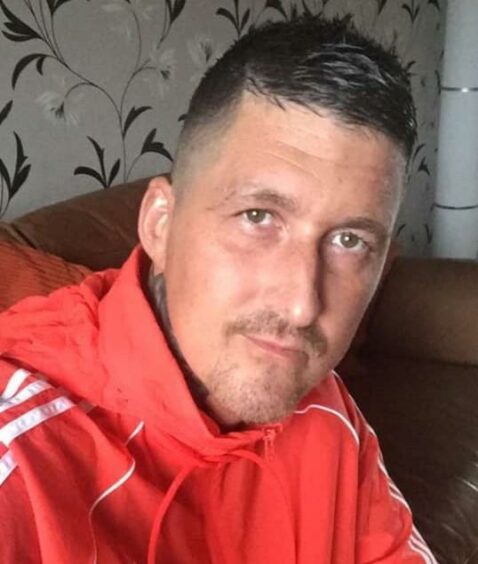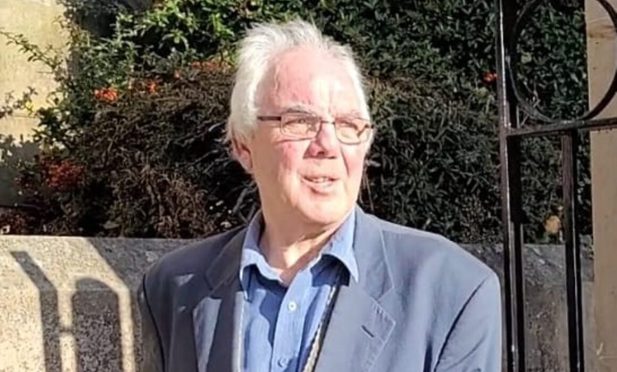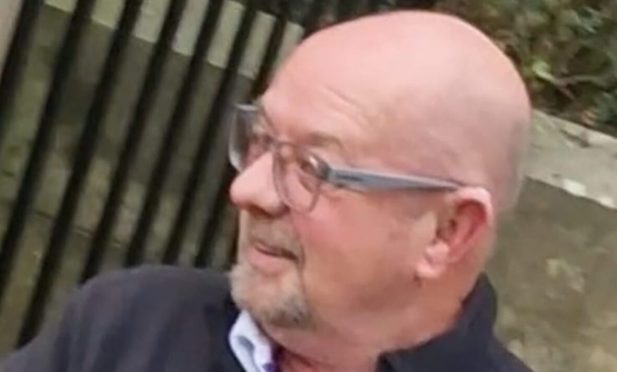An ex-solder who battered his ex-partner unconscious has been remitted to the High Court for sentence, as it emerged he carried out the brutal assault a day after being released from prison for a domestic offence.
Paul McMullan was told by Sheriff Susan Duff his case would be sent to the High Court as he “may present a substantial and continuing risk to public safety” after attacking Angela Connelly on January 22 last year in her Dunfermline home.
A maximum prison sentence of five years is available to sheriffs in a solemn court whereas High Court judges have the power to impose anything up to a life sentence.
Miss Connelly was discovered two days later, bloodied and bruised and with a black ligature tied round her neck, after managing to crawl upstairs to bed from her kitchen floor where she had been left by her attacker.
Alarmed Miss Connelly’s house had been in darkness all weekend, her niece who was staying nearby found her on the Sunday.
McMullan, who previously served in the Army in Kenya and Northern Ireland, had claimed during a trial at Dunfermline Sheriff Court last month Connelly swung a knife at him during an argument.
He said as he put his arms up in self defence, she fell and struck her head on a living room radiator.
However, accident and emergency doctor Victoria Francois, who assessed Miss Connelly later that night, told jurors the injuries she suffered on both sides of her face were consistent with “multiple blows”.
McMullan appeared for sentencing this week via video link from prison.
The court heard he has six previous convictions for domestic offending.
Defence lawyer Alan Davie also confirmed to Sheriff Duff McMullan had been released from prison “a day prior” to the attack on Miss Connelly.
The sheriff told McMullan: “Having regard to your conviction in this case and your six previous convictions that have domestic aggravations – including two directly analogous convictions involving at least one other woman – I’m satisfied… you may present a substantial and continuing risk to public safety and I’m therefore remitting this case to the High Court.”
‘Black material’ tied round neck
A jury took only about 30 minutes to unanimously find McMullan guilty of the assault charge following last month’s three-day trial.
Miss Connelly told the trial McMullan had “showed up” at her door in Dunfermline’s Carnock Road and let himself in to use the toilet, before she felt a “huge blow” to the back of her head.
The 40-year-old said she next remembered waking up in her kitchen some time later and crawling upstairs to her bedroom.
She described feeling like she “had been in a car crash.”
Miss Connelly’s niece, Coady Bell, told the court her aunt “thought there was chocolate on her face” when she woke her up but it was actually dried blood.
Miss Bell said the back of her aunt’s ear was split and that she had a piece of “black material” tied round her neck to the point her skin was severely swollen.
Both Miss Bell and another person who went to the house told the court they saw dried blood on the kitchen floor when they entered through the back door.
Troubled background
The court heard McMullan, whose address was given as a prisoner at HMP Perth, had been a best friend of Miss Connelly’s brother and he has been known to her family for many years.
He was found guilty of striking Miss Connelly on the head and body, causing her to fall to the ground and repeatedly striking her on the head and body, leaving her unconscious and tying a piece of material around her neck.
He also previously pled guilty to behaving in a threatening or abusive manner by threatening violence towards two police constables at Kirkcaldy’s Victoria Hospital on January 25 last year.
McMullan’s defence lawyer, Mr Davie, told the court his client was someone who, as a child, experienced corporal punishment and also spent five years in care.
The solicitor said he joined the Scots Guards prior to his 16th birthday and spent nine years serving his country, which included terms in Kenya and Northern Ireland.
Mr Davie said his client still has issues in relation to his childhood that need addressed and in 2020 he was placed in contact with a psychologist.











